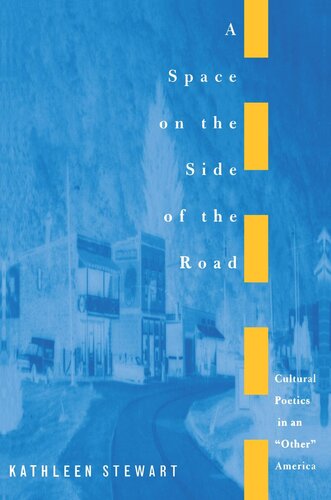

Most ebook files are in PDF format, so you can easily read them using various software such as Foxit Reader or directly on the Google Chrome browser.
Some ebook files are released by publishers in other formats such as .awz, .mobi, .epub, .fb2, etc. You may need to install specific software to read these formats on mobile/PC, such as Calibre.
Please read the tutorial at this link: https://ebookbell.com/faq
We offer FREE conversion to the popular formats you request; however, this may take some time. Therefore, right after payment, please email us, and we will try to provide the service as quickly as possible.
For some exceptional file formats or broken links (if any), please refrain from opening any disputes. Instead, email us first, and we will try to assist within a maximum of 6 hours.
EbookBell Team

5.0
88 reviewsA Space on the Side of the Road vividly evokes an "other" America that survives precariously among the ruins of the West Virginia coal camps and "hollers." To Kathleen Stewart, this particular "other" exists as an excluded subtext to the American narrative of capitalism, modernization, materialism, and democracy. In towns like Amigo, Red Jacket, Helen, Odd, Viper, Decoy, and Twilight, men and women "just settin'" track a dense social imaginary through stories of traumas, apparitions, encounters, and eccentricities. Stewart explores how this rhythmic, dramatic, and complicated storytelling imbues everyday life in the hills and forms a cultural poetics. Alternating her own ruminations on language, culture, and politics with continuous accounts of "just talk," Stewart propels us into the intensity of this nervous, surreal "space on the side of the road." It is a space that gives us a glimpse into a breach in American society itself, where graveyards of junked cars and piles of other trashed objects endure along with the memories that haunt those who have been left behind by "progress."
Like James Agee's portrayal of the poverty-stricken tenant farmers of the Depression South in Let Us Now Praise Famous Men, this book uses both language and photographs to help readers encounter a fragmented and betrayed community, one "occupied" by schoolteachers, doctors, social workers, and other professionals representing an "official" America. Holding at bay any attempts at definitive, social scientific analysis, Stewart has concocted a new sort of ethnographic writing that conveys the immediacy, density, texture, and materiality of the coal camps. A Space on the Side of the Road finally bridges the gap between anthropology and cultural studies and provides us with a brilliant and challenging experiment in thinking and writing about "America."